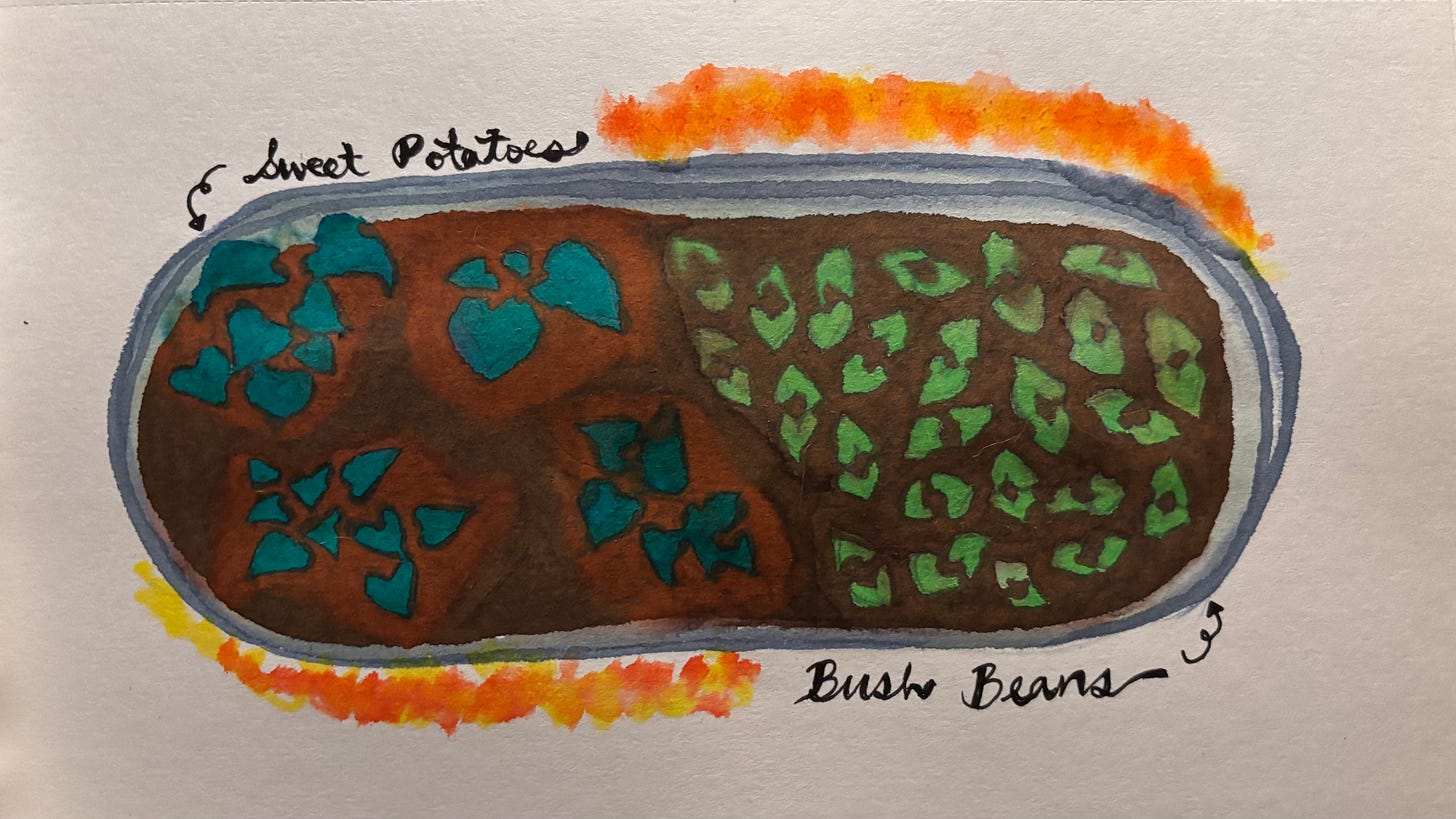Listen to the Song in the Audio ↑
Read the Story Behind the Song ↓
When I think about everything that humanity has been through over time, I can’t help but to be in awe of our resilience. History has not always been pretty (to put it lightly). And though the scars of the past sometimes still sting and ache, sending ripples of pain through the present day, here we still are. All things considered, that we haven’t given up as a species is remarkable. In the face of insurmountable challenges, we always overcome. It’s our nature.
Along the way, gardening has been a universally dependable response to crisis1. From the relief gardens of the Great Depression234, the victory56 and allotment7 gardens of the First and Second World Wars, the organopónicos8 and dachas9 after the fall of the Soviet Union, the Spanish urban gardens10 following the Great Recession, the gardens of Iraqui refugee camps11, and the global increase in gardening during the pandemic1213141516, in times of great need, gardens deliver in more ways than one.
Indeed, it has been well-documented how home and community gardening create resilience through healthy food, local empowerment, positive social connections, exercise, and stress-relief. Though there are limits to the garden’s benefits (including time, access and resources), and through gardening certainly isn’t the end-all solution in times of need, the essential part that gardens play in human resilience is undeniable.
In my life, the gifts of gardening have extended well-beyond what’s been documented, helping me to overcome debilitating anxiety and depression by connecting me with Life in ways that have not only transformed how I see the world, but also how I understand my place and purpose within it. Some of those bonus benefits (to just scratch the surface) include: the sense of abundance and gratitude that come from understanding the true cost and value of my food (and everything that comes from the earth), the empowerment that comes with meaningful physical labor, and the fulfillment that comes with delayed gratification. Gardening has given me strength, confidence, purpose and patience.
No doubt, the list of gifts that the garden has given me is endless (even as a novice), which is why I’ve devoted my art to exploring its wonders (listen to more songs and stories here). Still, of all the gifts that the garden has given me, perhaps the most important one is a connection to the awesome spirit of Life: the all-powerful force that drives everything to grow and fall and rise again throughout the years and seasons. Indeed, one of the most amazing things that I’ve experienced while gardening is the humbling and heartwarming realization that I do not grow Life -I only give it what it needs to grow. Gardening is an act of nurturing something miraculous. It’s taught me to love: to tend another by recognizing how the wellness of the world around me is an essential part of my own well-being. That Life gives me what I need to give it is a wonder that has awakened the same mysterious power within; to care for Life has brought out the Life in me.
Speechless, amazed, and with tears welling, there are no words for this feeling: to realize how I’m part of the spirit of Life that breathes Life in me. This song celebrates the absolute love and joy that live in that feeling, and that fuel the resilience of all living things -especially through our hard times. Thank you so much to all those who keep caring for Life, even when things are tough. You remind me of what I’m here for, and what I’m made of.
Hear More Songs & Stories of Loving Life
Let’s Stay In Touch 💗
https://www.frontiersin.org/journals/sustainable-food-systems/articles/10.3389/fsufs.2022.841386/full
https://silverhomestead.com/great-depression-home-gardening/
https://daviesscountyhistoricalsociety.com/1934/07/24/relief-gardens/#:~:text=By 1935, the number of,pears to be given away.&text=A photograph while gardening during yesteryear (date unknown).
https://silverhomestead.com/great-depression-farm-stories/
https://www.nps.gov/articles/000/victory-gardens-on-the-world-war-ii-home-front.htm#:~:text=Victory Gardens freed up agricultural,their families enjoyed better nutrition.
https://www.growingagreenerworld.com/episode126/#:~:text=Initially called “Liberty Gardens” in WWI they,trains could move troops and materials instead.
https://www.scienceandmediamuseum.org.uk/objects-and-stories/history-allotments#:~:text=There was a huge increase,nearly 1.5 million allotment plots.
https://en.wikipedia.org/wiki/Organopónicos#:~:text=Organopónicos first arose as a,supported by the Cuban government.
https://www.notechmagazine.com/2020/03/a-dacha-for-everyone-community-gardens-and-food-security-in-russia.html#:~:text=During that period, fears concerning,15]
https://acme-journal.org/index.php/acme/article/view/1402/1251#:~:text=Allotment gardens, and urban agriculture more generally,,making productive use of vacant land (e.g.
https://lemontreetrust.org/community-gardens/
https://www.sciencedirect.com/science/article/pii/S1618866723002339#bbib54
https://pmc.ncbi.nlm.nih.gov/articles/PMC9242931/
https://www.sciencedirect.com/science/article/pii/S0169204624001476
https://www.sciencedirect.com/science/article/pii/S1618866722000267?via=ihub
https://www.sciencedirect.com/science/article/pii/S1618866723002339














Share this post